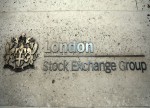
- All Instrument Types
- Indices
- Equities
- ETFs
- Funds
- Commodities
- Currencies
- Crypto
- Bonds
- Certificates
Please try another search

Rising Yields Could Undermine Stocks, Reignite EM Currency Crisis

The biggest story in the markets right now is that benchmark government bonds are getting absolutely hammered, lifting yields across the developed economies. In essence, it is the unwinding of the massive bond buying programmes from major central banks, led by the US where the Federal Reserve is already on a hiking cycle. But we are also seeing bonds fall and yields rise in Europe, with German 10-Year bund, for example, hitting its best level since May. In the UK, Gilts are on the rise too and the 10-Year has now reached 1.531, its highest level since May 22.
Clearly market participants are growing optimistic about the health of the global economy and therefore expect monetary conditions to tighten further. The ECB has already started to taper its bond buying programme and plans to end it in December, before raising interest rates at some point in 2019 - probably after the summer. In the UK, the Bank of England has already raised rates from the post financial crisis record lows and is expected to tighten its belt further in the upcoming months, especially if there is a breakthrough in Brexit stablemate. Elsewhere, the Bank of Canada is set to hike rates again at its next meeting owing to improving conditions there and after they reached a new trade deal with the US and Mexico.
The rally in bond yields, if sustained, could have major implications on financial markets going forward. It was during all those years post the financial crisis when they were falling which led to investors flocking to the higher-yielding stock markets in the first place. Now that bond yields are rising, this is eroding the attractiveness of equities on a relative basis. Thus, we could see funds flowing out of equities, leading to a correction for major global indices.
In the US, the three major indices - S&P 500, Dow Jones and Nasdaq - have all been trading near record highs this week. However, the small-cap index, the Russell 2000, has been going the opposite direction. In part, the divergence could be due to the rising yields and the dollar, making the large caps more attractive as they make a bulk of their earnings abroad. So when the earnings are converted back to the dollars, their results will appear better than would otherwise be the case. Also, higher yields are seen as being positive for banking stocks. But this can’t go on for too long, and once sentiment turns negative, even the large caps, including banks, could drop.
With the latest reporting season set to start next week, things could get really interesting for stocks.
Meanwhile the rising yields in developed economies could potentially re-ignite the emerging market currency crisis. This is an additional risk factor for equities that needs to be taken into account.
But so far the US stock markets in particular have been very resilient to rising yields. It could be that investors are warming to signs of improving economy and they therefore think this is positive for company profits. Even so, valuations are extremely stretched in the US and a so correction may be looming anyway.

Disclaimer: The information on this web site is not targeted at the general public of any particular country. It is not intended for distribution to residents in any country where such distribution or use would contravene any local law or regulatory requirement. The information and opinions in this report are for general information use only and are not intended as an offer or solicitation with respect to the purchase or sale of any currency or CFD contract. All opinions and information contained in this report are subject to change without notice. This report has been prepared without regard to the specific investment objectives, financial situation and needs of any particular recipient. Any references to historical price movements or levels is informational based on our analysis and we do not represent or warranty that any such movements or levels are likely to reoccur in the future. While the information contained herein was obtained from sources believed to be reliable, author does not guarantee its accuracy or completeness, nor does author assume any liability for any direct, indirect or consequential loss that may result from the reliance by any person upon any such information or opinions.
Related Articles

The market premium for the US 10-year Treasury yield rebounded sharply in January, rising to its highest level in nine months, based on a “fair value” estimate calculated by...

In just 4 years, the trend (and investment theme) of low interest rates has been turned on its head. During this time, home and auto loan rates have gone from consumer-friendly to...

In this episode, Anthony and Piers discuss the current state of the UK market, focusing on the drop in the pound and the significant rise in bond yields. They explore the yield...
Are you sure you want to block %USER_NAME%?
By doing so, you and %USER_NAME% will not be able to see any of each other's Investing.com's posts.
%USER_NAME% was successfully added to your Block List
Since you’ve just unblocked this person, you must wait 48 hours before renewing the block.
I feel that this comment is:
Thank You!
Your report has been sent to our moderators for review




Add a Comment
We encourage you to use comments to engage with users, share your perspective and ask questions of authors and each other. However, in order to maintain the high level of discourse we’ve all come to value and expect, please keep the following criteria in mind:
Perpetrators of spam or abuse will be deleted from the site and prohibited from future registration at Investing.com’s discretion.